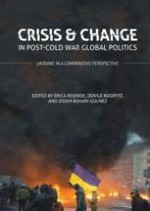
2018 | OriginalPaper | Chapter
1. Introduction
Authors : Erica Resende, Dovilė Budrytė, Didem Buhari-Gulmez
Published in: Crisis and Change in Post-Cold War Global Politics
Publisher: Springer International Publishing
Activate our intelligent search to find suitable subject content or patents.
Select sections of text to find matching patents with Artificial Intelligence. powered by
Select sections of text to find additional relevant content using AI-assisted search. powered by